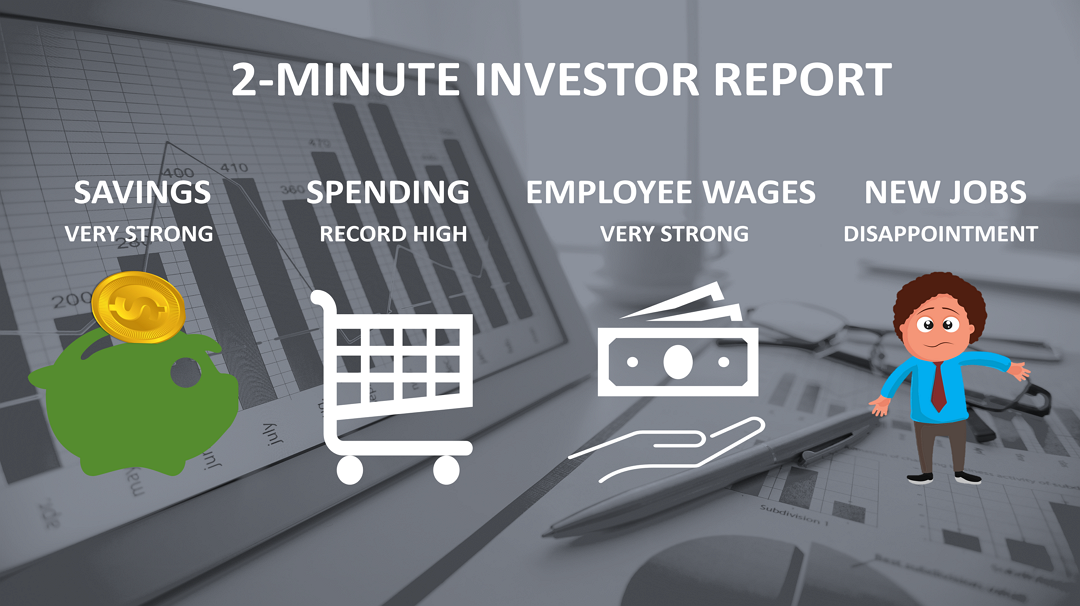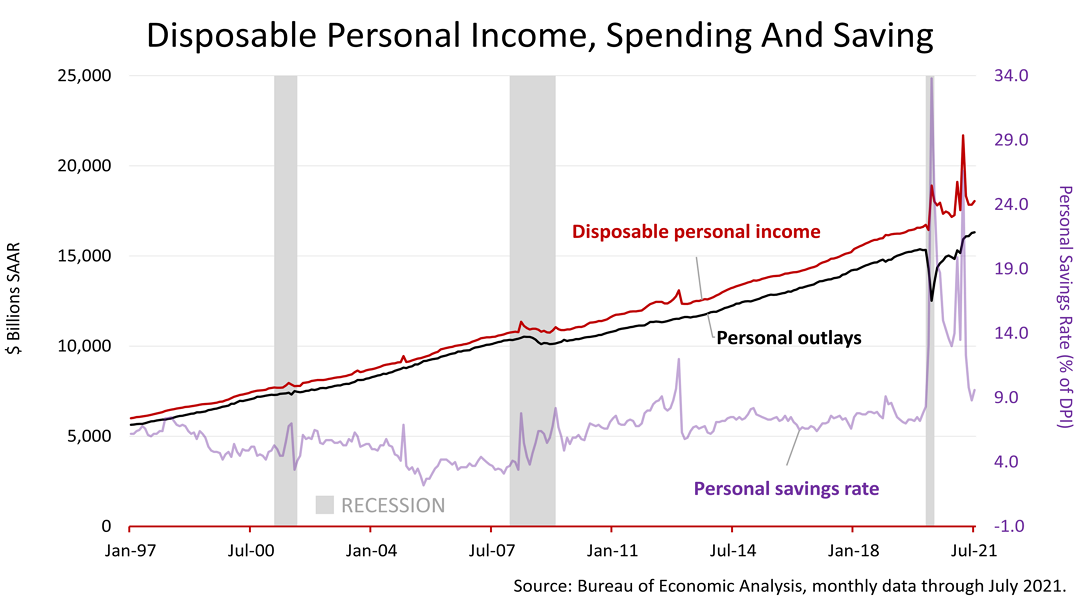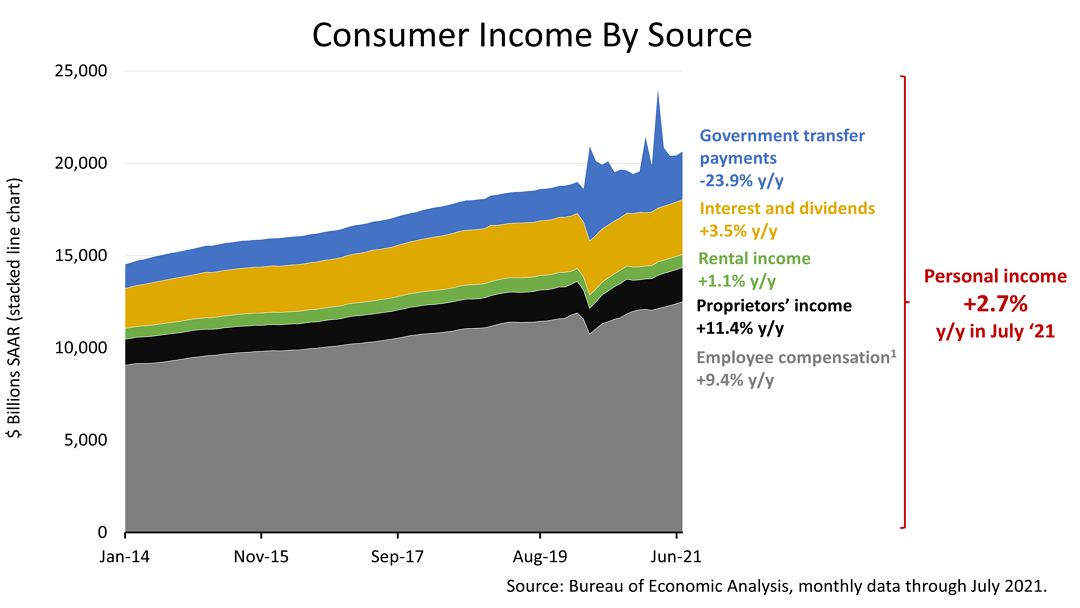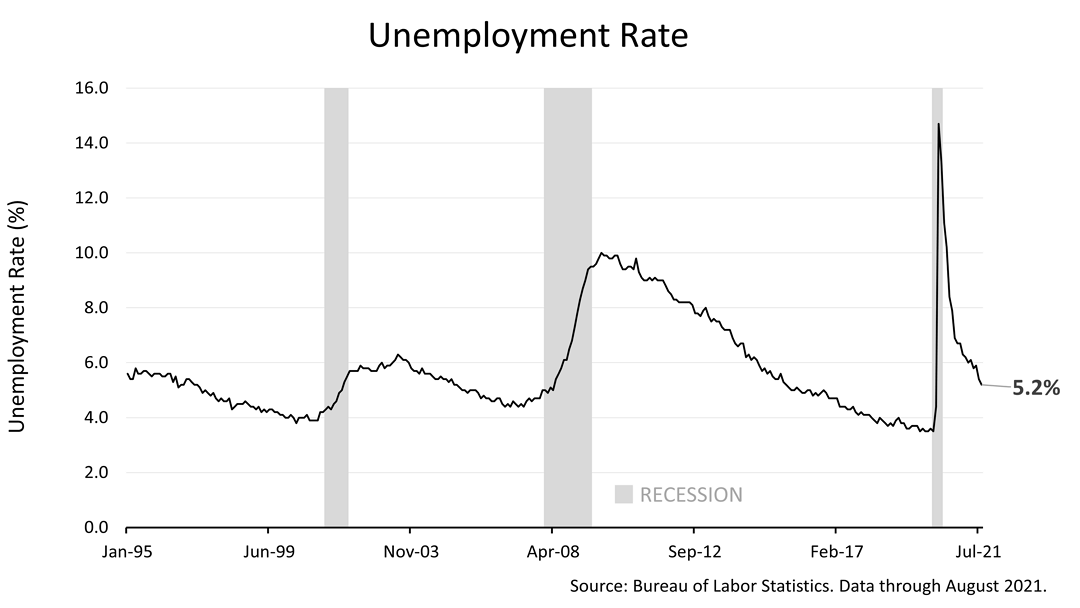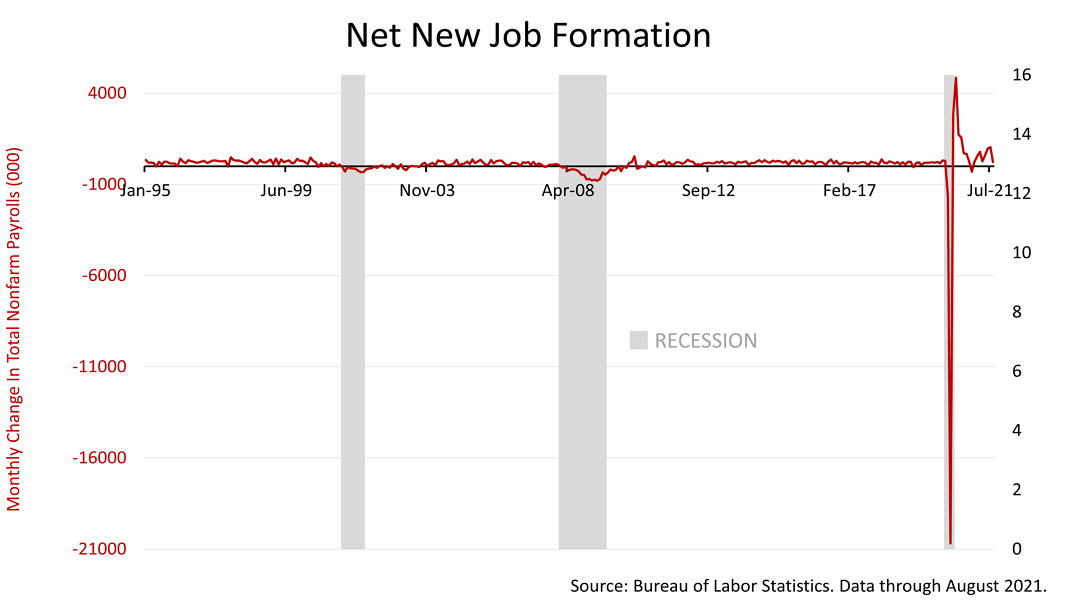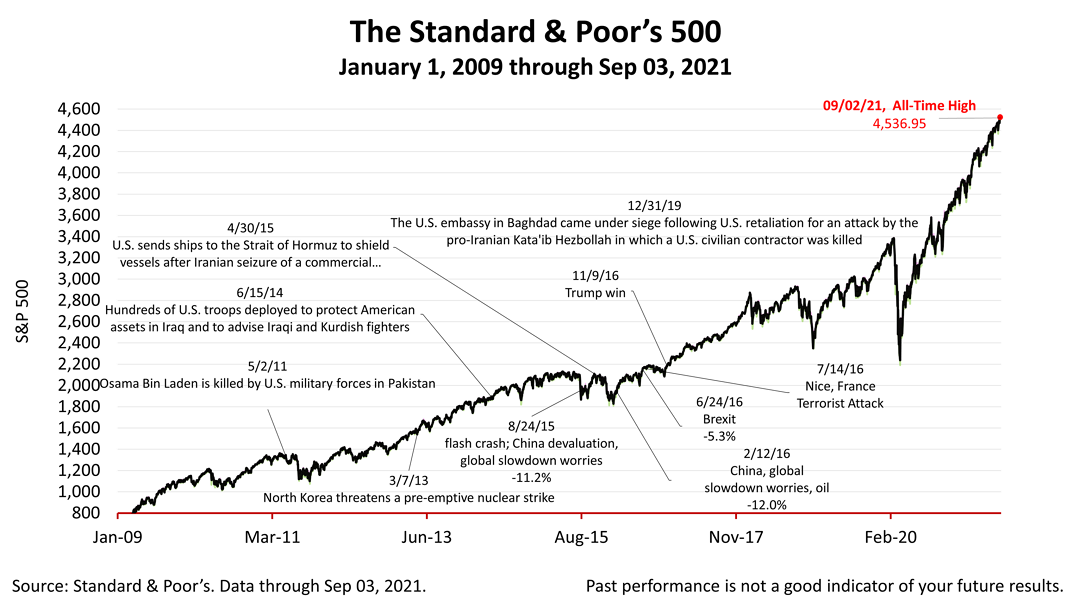Savings, spending and employee compensation - key fundamentals driving U.S. economic growth - were all very strong in July, according to the latest government reports. However, today's announcement showing the economy created 235,000 new jobs last month was a disappointment.
Here are the highlights of the latest financial economic news.
Disposable personal income remained strong in July, as DPI surge from the third round of Covid relief checks to consumers is spent down and the extra unemployment benefits are no longer available.
Personal spending, however, has recovered to its pre-Covid trend pace. The savings rate, at 9.6%, is still elevated compared to before the pandemic.
Employee compensation, another key fundamental driver of U.S. economic growth, amounted to 61% of total personal income of Americans in July, despite the elevated post-Covid unemployment rate of 5.2%. With wages, salaries, and employee benefits growing by 9.4% in the 12 months ended July 31, 2021, employee compensation is back up to where it would have been if the pandemic never happened.
The unemployment rate ticked lower from 5.4% in July to 5.2% in August is good news, but unemployment is not a forward-looking indicator. The more revealing snapshot of the employment situation is net job growth, and that was a disappointment.
Today’s report that 235,000 new jobs were created in August was much lower than the estimate for 720,000 and far lower than the 1.05 million new jobs created in July. Jobs numbers are volatile, however, so it’s unwise to read too much into the disappointing report.
The Standard & Poor's 500 stock index closed this Friday at 4,535.43. The index lost -0.03% from Thursday, when it set a new all-time closing high. The stock index was up +0.57% from last week, and it has gained +67.86% since the March 23, 2020, bear market low.


